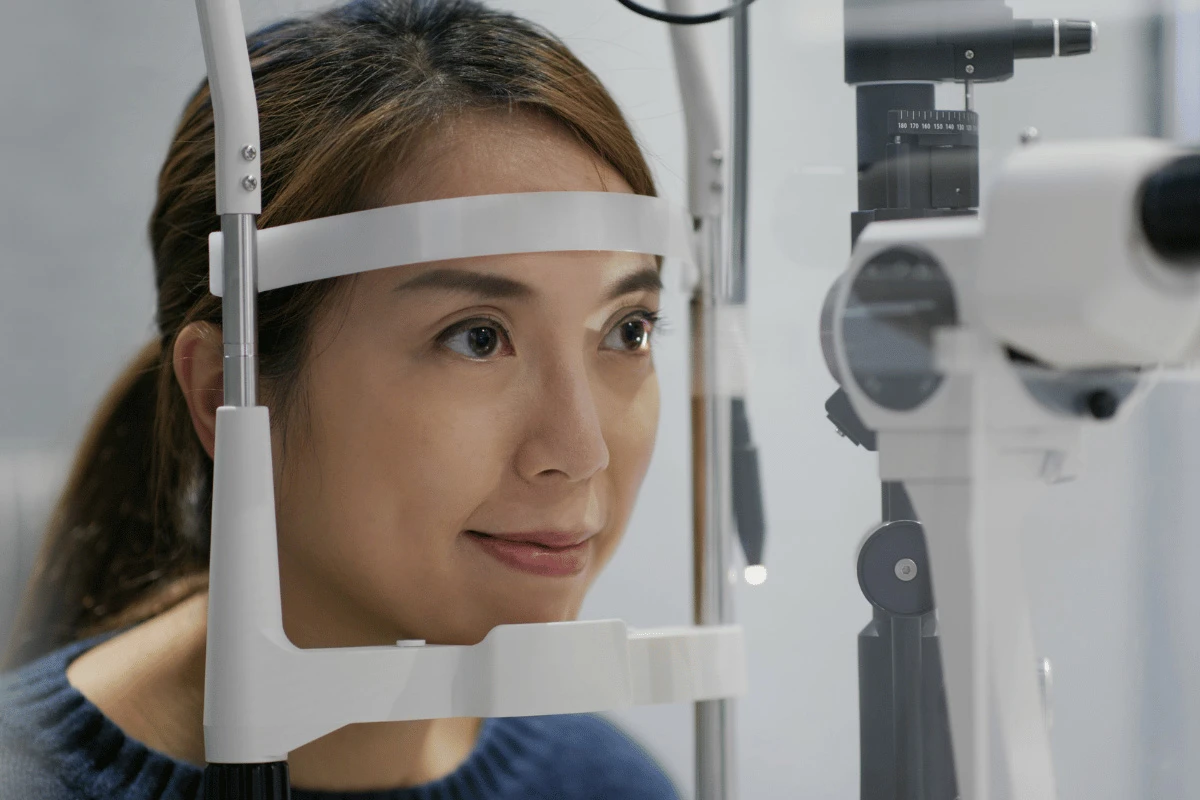Have you ever wondered if a quick vision check at your doctor’s office or work is enough to keep your eyes healthy? Or you may have asked yourself why experts recommend back-to-school eye exams when your child already had a vision check at school.
Some people think a vision screening is enough to assess their eye health, but these screenings are not a substitute for comprehensive eye exams. Studies show that vision screenings can miss up to 75% of children with vision problems¹, and they can also overlook significant eye problems in adults. At Progressive Family Eye Care, our comprehensive eye exams in Plymouth provide a much more detailed look at your eye health and can detect eye conditions that may otherwise go unnoticed.
Keep reading to learn more about the differences between vision screenings and comprehensive eye exams and why you should schedule regular eye exams with an optometrist.
What is a vision screening?
Vision screenings are typically quick procedures designed to identify potential vision problems. They’re usually done at schools, workplaces, or community events and often by nurses, teachers, or trained volunteers. The primary goal of a vision screening is to identify individuals who may need a more thorough eye exam.
These screenings typically involve reading from an eye chart (think of those big letters at the eye doctor’s office) or using a simple tool to check for obvious problems. They’re useful for catching common issues like nearsightedness, farsightedness, and astigmatism, but they have their limits.
Just because you pass a vision screening doesn’t mean everything is ok with your eyes. Screenings won’t detect eye movement, teaming, or coordination problems, and they might miss more subtle or complex issues like glaucoma or diabetic retinopathy. Online screenings can also miss these conditions, as they rely on basic assessments and might not capture the full picture of your eye health. If left undetected, these eye diseases can silently progress and permanently damage your vision.
What is a comprehensive eye exam?
In contrast, a comprehensive eye exam is a detailed and full evaluation of your eyes and vision conducted by an optometrist or ophthalmologist. These exams include a variety of tests to assess both vision and eye health, including:
- Measuring your vision (visual acuity) to determine if you need glasses or contact lenses
- Checking eye pressure to screen for glaucoma
- Examining the retina, optic nerve, and other internal structures of the eye
- Evaluating eye alignment, coordination, and movement
- Assessing focusing ability and depth perception
- Reviewing your overall eye health to detect early signs of diseases such as cataracts, macular degeneration, or diabetic retinopathy
Many eye diseases do not show symptoms in their early stages, and a comprehensive eye exam is the only way to detect these conditions before they cause significant damage. These exams allow for earlier detection of conditions, so you can start treatment sooner and prevent vision loss. Your eyes can also reveal signs of underlying health conditions, such as hypertension or diabetes.
Don’t let hidden eye problems go undetected
While a vision screening is useful for spotting potential issues, it should not replace a comprehensive eye exam. A thorough eye exam is crucial for detecting and managing eye health issues and ensuring your vision is the best it can be.
At Progressive Family Eye Care, we offer comprehensive eye exams for the whole family, including pediatric eye exams for the little ones. Our experienced eye doctors use their expertise to diagnose and treat various eye conditions, ensuring superior care for every patient.
Please call us today or use our online scheduler to request an appointment. We look forward to helping you and your family maintain excellent eye health!
References:





